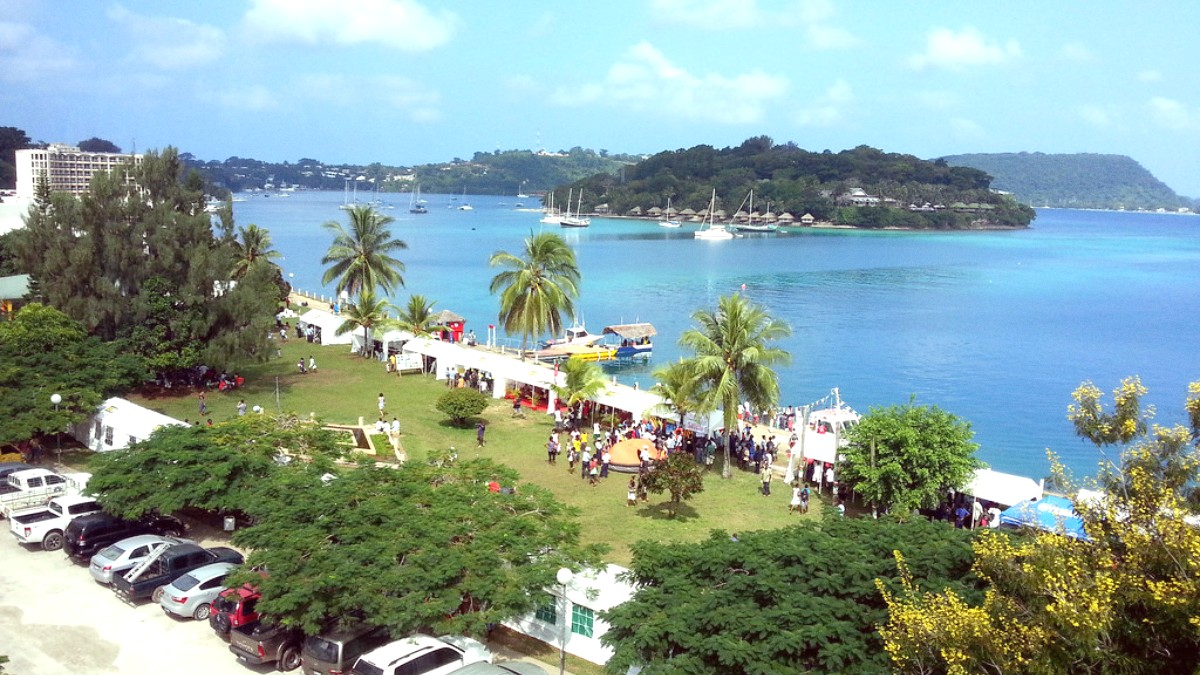
Efate, Vanuatu
Vanuatu has a growing network of Marine Protected Areas (MPAs). These areas work to conserve marine biodiversity, shield coral reefs, and foster sustainable fishing practices. They often include community management, supporting benefits for local people who depend on these resources. Support operators who collaborate with or contribute to these conservation efforts.
Waste management poses a challenge in Vanuatu, notably outside Port Vila's main urban areas. Recycling facilities are limited. Minimize the waste you produce. Avoid single-use plastics whenever possible. Use a reusable water bottle and refill it. Say 'no' to plastic bags. Carry out all your trash, especially when visiting remote sites. Dispose of waste thoughtfully in designated bins.
While Vanuatu generally receives ample rainfall, fresh water resources can face strain in some areas. Mind your water usage. Take shorter showers, reuse towels, and report any leaks in your accommodation. Eco-friendly accommodation options are available via Ecobnb.
Your interactions with locals can profoundly shape their communities. Thoughtful engagement makes a difference.
The Vanuatu Cultural Centre, located near the National Museum in Port Vila, serves a role in preserving and promoting traditional Ni-Vanuatu culture. This includes languages, customs, and art forms. Support their work by visiting the museum or purchasing their publications. G Adventures offers ethical tour options.
Always ask for explicit permission before taking photos of people, especially in villages, at the market, or during traditional ceremonies. A simple 'Halo, mi save tekem piksa?' (Hello, may I take a photo?) receives appreciation. Respect a 'no' without question. Dress modestly, notably when visiting local villages, cultural sites, or churches. Covering shoulders and knees displays respect.
If visiting a nakamal (kava bar), observe local customs: often men and women sit separately, and drink your kava quickly from the bilo (coconut shell). Be respectful when visiting local churches. Dress modestly and observe any specific rules posted. If you attend a service, enter quietly and participate respectfully if invited.
Reiterate the message on seeking permission and being mindful of privacy. Avoid taking photos that could seem exploitative or that sensationalize poverty. Be mindful of people's privacy and personal space. Some sacred sites or kava ceremonies may prohibit photography. Observe and respect any signs or local guidance.
When purchasing handicrafts and souvenirs, buy directly from local artisans at the Port Vila Market (Mama's Market section) or from small, locally owned shops. This makes certain that the money directly reaches the producers. Inquire about the origin of products. Support ethical practices by avoiding items that exploit local resources or labor. Carbon offset your travel with Terrapass.
Buy direct from artisans for local benefit. Money stays local, supporting producers.
The Rainforest SiteInquire about product origin. Avoid items from protected or illegally harvested resources.
PatagoniaResponsible travel supports direct local community benefits and Vanuatu’s sustainable development.
Support initiatives that directly benefit local communities. Seek tours to cultural villages (like Ekasup Cultural Village) where your entry fee contributes directly to the villagers. Choose village stays or tours that hire local guides and contribute directly to community development projects (e.g., schools, water supply). These initiatives often deliver a more authentic and rewarding experience.
Choose locally owned hotels, guesthouses, restaurants, and tour operators over large international chains whenever possible. This keeps money within the local economy and supports local jobs. Eat at local eateries and the Port Vila Market. Use local transport like minibuses.
Your spending choices directly shapes the livelihoods of Ni-Vanuatu people. Opt for local vendors and services to maximize positive economic returns.
Fresh produce, local meals.
Support artisans directly.
Choose locally owned for greater benefit.